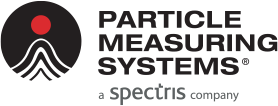The role of data quality systems in pharmaceutical organizations has grown faster than any other function during the last 15 years. During this period, a small group dedicated to traditional Compliance grew and expanded to include Quality Experts in areas such as validation, product release, operations, sterility assurance, and other specialized functions. Creating a deeper quality connection between manufacturing and engineering has always been the aim of that growth. Little by little, quality became fundamental to every step of the pharmaceutical manufacturing process: changing from a siloed concept to a more fluid one. Now, a new challenge is approaching. The fourth industrial revolution (Pharma 4.0™) is the beginning of the “Smart Facility” era, where digitalization and automation will combine to reach very complex applications and life cycles. In this brand-new framework, Quality Experts will face the challenge of rethinking their roles and redesigning the Quality Systems of their pharmaceutical companies based on the concepts of Data Quality.
The ICH Idea of Pharma
Since 1990, the International Council for Harmonization (ICH) has aimed to to ensure that safe, effective, and high-quality medicines are developed and registered in the most resource-efficient manner. Between 2005 and 2008, with the publication of the Q9 and Q10 guidelines, the council explained what the quality systems should be and how they should work to assure the highest possible quality drug product.
During these years, we can affirm that most of the pharmaceutical firms in the world designed their quality system to fit the ICH guidelines, enhancing the ICH’s role in the pharmaceutical organization. Simultaneously the value and the challenge of the ICH was, fundamentally, to use science and risk-based quality system principles to cover the entire manufacturing product life cycle.
The New Keywords
The ICH Q9 and Q10 described above were the first revolutions for what we can call the blockbuster era of pharmaceuticals, or “Pharma 2.0”. This era was characterized by the mass production of homogeneous products for extended periods of time. The main characteristics of these Pharma 2.0 organizations was that they were controlled by a hierarchical culture based on the experience of the decision-makers, and they were organized in silos.
As with every new era, some keywords are fundamental to understanding the critical differences from the past. For the fourth industrial revolution, Digital Maturity, Automation, and Holistic are the most vital terms to understand.
From Digital Maturity to Data Quality Concept
One of the strongest pieces of evidence of the fourth industrial revolution in Pharmaceutical production is the emergence of Smart Facilities. After years spent developing this concept on paper, these tech-enabled sites are becoming real. Briefly, a facility is “Smart” if all the Acatech Digital Maturity stages are fulfilled:
• Stage 1: Computerization
• Stage 2: Connectivity
• Stage 3: Visibility
• Stage 4: Transparency
• Stage 5: Predictive Capacity
• Stage 6: Adaptability
The New Challenge
What will happen to the Quality Expert as imagined by the ICH? Systems will advance to be able to correct, predict, and adapt existing processes in an automated way; and, in a short time, they will replace the methods for decision-making we are using right now. Can we say that Data Quality itself is enough to assure the quality of pharmaceutical products? As in every industrial revolution, technical advancement is not enough to change an era; cultural progress must be present with the same strength. Cultural changes can be top-down processes when upper management forces change or a bottom-up process when a widespread movement causes a revolution. In both cases, it is evidence of the presence of a siloed organization that needs to evolve.
Conclusions
In the age of the fourth industrial revolution, Data Quality is the foundation on which pharmaceutical companies must build up their production. The role of these new Quality Experts will become more fundamental than in the past. The fluid organization created by the Data Quality concept will change traditional departments into Empowered Value-Driven Organizations (EVO’s), where fundamental decisions will come from the Quality Experts without a decision hierarchy.
Learn more… Click here to get the full paper.
To learn more about resources to assist your organization in evolving to Pharma 4.0, please click here to learn more about Cleanroom Monitoring Systems that support Data Quality and Advisory Services to assist with implementation.
Additional Resources:
https://www.pmeasuring.com/webinars/environmental-cleanroom-monitoring-for-pharma-4-0/
https://www.pmeasuring.com/blog/data-integrity/
https://www.pmeasuring.com/blog/building-a-contamination-control-strategy-ccs-part-one/
https://www.pmeasuring.com/blog/data-trending-annex-1-alert-levels/
